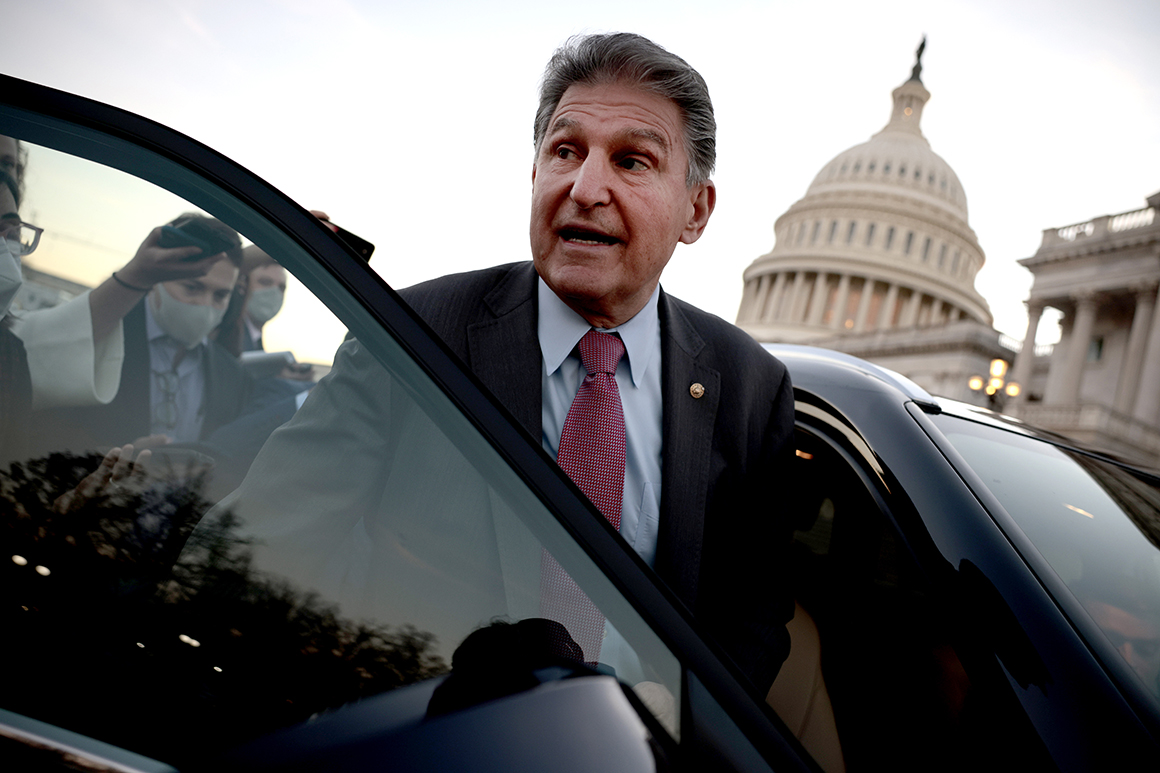Those headwinds are also coming at a delicate time for the Federal Reserve as it moves to withdraw its massive aid to the economy to bring spiraling inflation under control. If overall growth slows markedly, the central bank would have much less of a cushion to raise interest rates without injuring the broader economy.
Economists at Goldman Sachs on Sunday slashed their expectations for 2022, and other banks may soon follow, after Sen. Joe Manchin (D-W.Va.) said he could not support the current version of Biden’s Build Back Better bill. A sharp rise in the new Omicron variant before the holidays has fueled uncertainty over how consumers and policymakers will respond.
Goldman economists lowered their forecast for first-quarter gross domestic product growth to 2 percent from 3 percent, and trimmed their forecasts for the rest of the year by slightly lesser amounts.
Zandi, whose research is often cited by the White House, said he is likely to mark down his forecast by a full percentage point for 2022 if the Build Back Better bill doesn’t get through Congress and the Omicron variant drives another big spike in virus cases. He currently expects the economy to grow 3.5 percent next year, comparing the fourth quarter of 2022 to the fourth quarter of 2021.
Much of the downgrade from Build Back Better is due to the looming expiration of the enhanced child tax credit, which the Democrats’ $1.7 trillion spending bill would extend for another year. The fully refundable credit, which provides monthly payments to families, has bolstered consumer spending through 2021 and reduced childhood poverty this year by more than 40 percent, according to researchers at Columbia University.
Many families receiving the payments “are people who don’t have a lot of savings, and these are lower-income folks that, if given the extra dollar, are more likely to spend a higher percentage of that extra dollar,” said Brett Ryan, senior economist at Deutsche Bank.
“The country’s saving rate would drop over a percentage point if that went away,” Ryan said.
Deutsche Bank hasn’t yet revised its expectations, but Ryan said allowing the tax credit to disappear could reduce growth by 0.3 to 0.5 percentage points next year, lowering the bank’s forecast from 3.6 percent currently to about 3.1 percent.
It’s not clear how much the expiration of the payments will weigh on consumer spending as many households will be able to draw down savings built up during the pandemic, said Alec Phillips, chief political economist for Goldman Sachs. Spending early next year could also be bolstered by tax refunds, including refundable credits, which the IRS typically begins sending out in mid-February, Phillips said.
A White House official on Monday said state and local governments will also still be able to spend some of the $350 billion provided by the American Rescue Plan, the economic-relief legislation that Biden signed in March, which could further support the economy.
“Of course, we’re going to closely monitor the economic recovery and determine whether some additional targeted resources may be necessary,” the official said.
Forecasters still expect the economy to continue expanding above trend in 2022, but it may not grow as fast as previously expected.
While the surge in Covid cases threatens to undercut growth, much of the effect will depend on how policymakers respond. The Biden administration has signaled that a return to the kind of onerous restrictions implemented in the spring of 2020 is unlikely, though other governments, including in the U.K., are imposing new measures to help curb the spread.
Weaker consumer demand might head off the need for more aggressive Federal Reserve action. But pandemic-induced production and shipping delays could keep prices high, and the rising cost of rent is another significant contributor to overall inflation.
The Fed has put itself in a position to reassess economic conditions in March, when it is scheduled to halt its monthly asset purchases altogether, in the hopes that it will be able to start raising interest rates if inflation is still coming in hot, or to hold off if the economy seems like it’s faltering significantly.
“If we see a minimalist approach” to Covid restrictions, “that would minimize the impact on GDP and keep the Fed firmly on their pathway to expedite the taper process and move to a position of higher interest rate policy sooner than later,” said Lindsey Piegza, chief economist for Stifel Financial Corp.
Manchin has cited concerns about higher spending and deficits fueling price pressures next year as his main reason for opposing the president’s signature policy initiative.
Economists have said, however, the bill won’t make a large difference to inflation next year, despite adding to deficits. Researchers at the Penn Wharton Budget Model, which Manchin has previously cited, estimated last week the measure would add 0.1 to 0.2 percentage points to inflation over the next two years.
Wendy Edelberg, director of The Hamilton Project at the Brookings Institution and a former chief economist at the Congressional Budget Office, said the bill shouldn’t be viewed as a major driver of near-term growth or inflation, even though it may lead to somewhat lower GDP next year.
“There are really important forces that are buffeting the economy right now, and getting the pandemic under control is obviously just the most important thing policymakers can do,” she said.
Victoria Guida contributed to this report.
